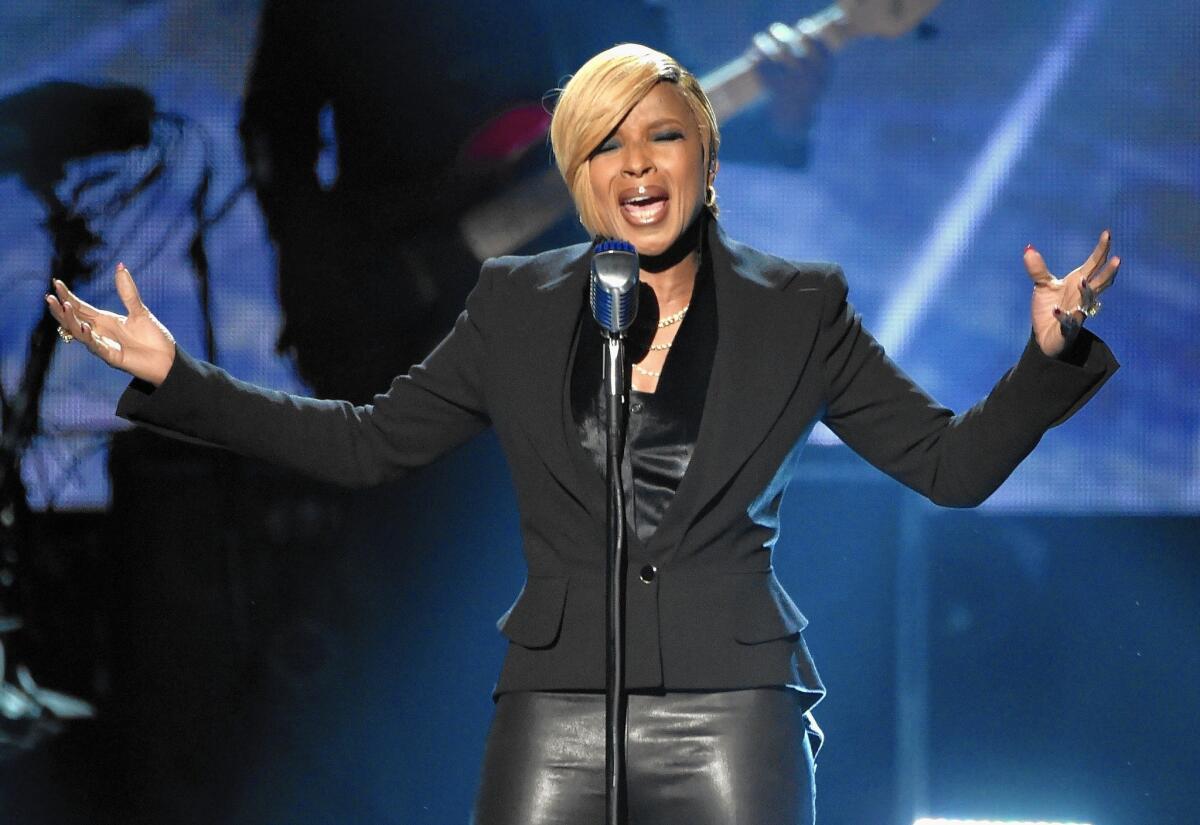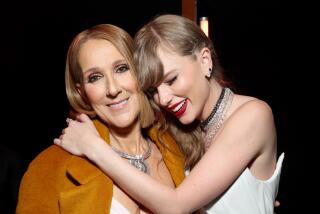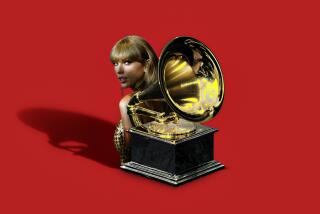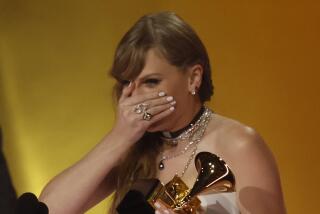American Music Awards 2014: Pop positivity, for better and worse

There’s only one place where One Direction would be named artist of the year, Iggy Azalea would beat Drake and Eminem for a hip-hop prize and Wyclef Jean would be described as no less than a “genuine reggae legend.”
Welcome to the American Music Awards.
Founded in 1973 by Dick Clark as a fan-voted alternative to the Grammy Awards, which are decided by a cadre of record-industry insiders, the AMAs cheerfully privilege the popular over the prestigious, with trophies handed out to the “favorite” artist or album in a given genre rather than the “best.”
In a world of top-down validation, it offers encouragement from the bottom up.
This year’s edition, broadcast Sunday night on ABC from the Nokia Theatre in downtown Los Angeles, demonstrated the advantages and the dangers of that approach.
On the plus side, there was Taylor Swift, pop’s biggest artist as well as one of its most respected, opening the show with a charged performance of “Blank Space,” her appealingly vicious song about her reputation as a man-eater.
Here she was depending on the loyalty of her fans to understand the joke — one bit of choreography had her poisoning a guy with an apple — but also exercising the top-level skills that have propelled her dogged rise to the top.
Later in the show, Diana Ross presented Swift the Dick Clark Award of Excellence, the closest thing to a lifetime achievement award a 24-year-old can likely win.
Yet the AMAs also fared well highlighting acts that’ve risen more quickly than Swift — a happy product of the show’s pop positivity.
One Direction, the British boy band that picked up several awards in addition to artist of the year, sounded great in its soft-rock ballad “Night Changes.” And Lorde summoned a spooky intensity during “Yellow Flicker Beat,” the 18-year-old New Zealander’s contribution to the latest “Hunger Games” soundtrack.
The show made room too for older hitmakers eager to stay in the conversation, such as Mary J. Blige, who was low-key but powerful in “Therapy,” a new song she co-wrote with the young English crooner Sam Smith.
Garth Brooks, beamed in via satellite from a concert in North Carolina, was anything but low-key doing “People Loving People,” a willful feel-good anthem from his new comeback album. But his sweat paid off: The country veteran appeared to be putting all he had into the song, moving his audience through sheer force of will.
The same could hardly be said of Lil Wayne, who seemed to view the relatively low-stakes gig as an excuse to mumble through “Start a Fire.” Smith was equally sleepy in his “I’m Not the Only One,” a heartbroken ballad that felt simply defeated onstage.
But if the AMAs rightly focus on artists who’ve captured fans’ imagination — a welcome corrective to the Grammys’ this-music-is-good-for-you vibe — the show also preserves acts that perhaps should’ve been allowed to disappear.
Certainly no one needed to be reminded of Magic! The Canadian reggae-pop group had a huge hit over the summer with “Rude,” and here it gave a laughably sloppy performance of the song with help — if that’s what you want to call it — from Jean, the one-time Fugees member whose introduction by Rita Ora must have surprised even him.
Imagine Dragons was more energetic in “I Bet My Life,” but its bombast felt just as empty. And though she won several major awards, including ones for hip-hop artist and hip-hop album, Azalea did little in her multiple performances to convince you that her left-field Australian take on Southern rap is worth paying any more attention to.
See her at the Grammys?
Twitter: @mikaelwood
More to Read
The biggest entertainment stories
Get our big stories about Hollywood, film, television, music, arts, culture and more right in your inbox as soon as they publish.
You may occasionally receive promotional content from the Los Angeles Times.







